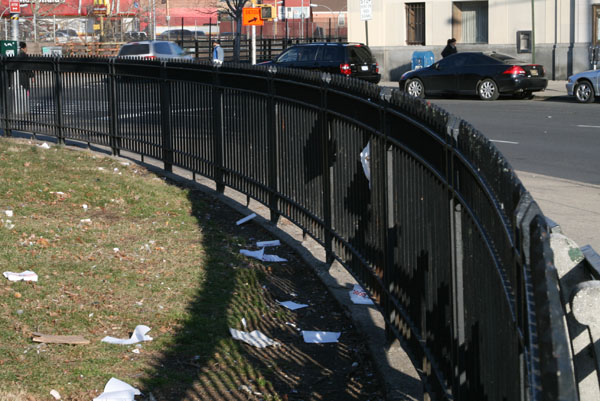
Congressman Nadler had a busy past week, packed full of victories and defeats for the progressive representative.
First, the victories. A U.S. District Court judge in New York this week filed a permanent injuction against legislation called the Defund ACORN Act, which passed both chambers in September of last year. At the time, Nadler and others criticized the bill, saying it violated the Constitution’s protection against “bills of attainder“.
Judge Nina Gershon of the Easter District of New York agreed. Conservative bloggers and commentators are crying foul, accusing Judge Gershon, a Clinton appointee, of (wait for it…) “judicial activism.”
Congessman Nadler, who chairs he House Judiciary Subcommittee on the Constitution, Civil Rights and Civil Liberties, applauded the decision, saying in a press release released March 12:
As I said on the House floor in September, when the bill of attainder was introduced, Congress must not be in the business of punishing organizations or people without due process. The Republican amendment was flatly unconstitutional, and we ignore the Constitution at our own peril. Constitutional principles are there to protect all of our liberties and cannot be compromised – certainly not for political witch hunts.
As has been noted elsewhere, some saw the broad language used in the Defund ACORN Act as an attempt to get around being a bill of attainder, while inadvertently lumping in all groups or companies who have broken the law as being ineligible to do business with the U.S. government. Given the potential ramifications of this, it remains to be seen who will come to the act’s rescue.
Now for the defeats. A bill calling for the withdrawal of U.S. forces from Afghanistan was defeated in the House, 356-65. Nadler was at least in good company, as 75 percent of the New York City delegation voted in favor of withdrawal, with the notable exceptions of Congessmen Engel, Weiner, McMahon and Meeks, who all voted “no”.
And lastly Congressman Nadler continued his push for gay rights, this time in the area of housing discrimination. Nadler has been at the forefront of LGBT legislative issues. This week he and Congressman John Conyers of Michigan, who chairs the House Juiciary Committee Nadler sits on, introduced a bill that would amend the Fair Housing Act of 1968 to “prohibit housing discrimination on the basis of sexual orientation and gender identity”, according to Nadler. He continued:
Outright discrimination, steering, a refusal to build accessible housing as required by law, and discriminatory lending practices continue to plague renters and prospective homeowners. And, shamefully, discrimination on the basis of sexual orientation and gender identity are perfectly legal in many areas, and people are regularly denied a place to live simply because of that status.
All in a week’s work for one of congress’s most progressive members.





